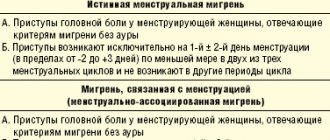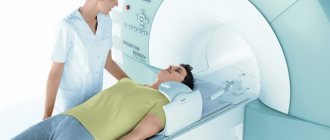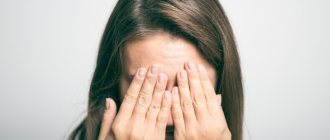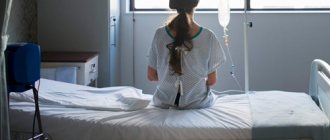How to get out of depression yourself - advice to a woman
According to statistics, women suffer from depression 2 times more often than men. This is due to greater emotionality and changing hormonal levels during the menstrual cycle. Due to the fact that women more often pay attention to their mental health, at the early stages of depressive disorder they are able to cope with it on their own.
6 rules for getting out of depression for a woman:
1. Positive emotions - they should be bright and strong. It’s better to put off ordinary hobbies or walks for now and try to organize an extreme event: flying in a wind tunnel, skydiving, go-karting, paintball and others. Such events give very vivid impressions and help you begin to appreciate life.
2. Physical activity - morning exercises or jogging does not take much time, but it promotes the production of neurotransmitters - “joy” hormones. Evening exercise improves sleep and relieves stress accumulated during the day. It is best to invite friends to play sports and ask them to join you. This will increase motivation, make you feel important and provide an opportunity to socialize once again.
3. Leisure – if your previous hobbies do not bring you pleasure, you should try to find new ones. It’s worth going to master classes, exhibitions, and trial classes.
4. Proper nutrition - the body spends a lot of energy digesting fatty foods, which is completely inappropriate for depression. It is better to eat light dishes, but varied. It is important not to overeat.
5. Daily routine and sleep - rest is very necessary for any illness, including depression. Getting up and going to bed at the same time, sleeping at least 8 hours a day will help cope with weakness and give the body a signal that everything is fine, predictable and safe.
6. Relaxation - every day it is recommended to devote at least 2 minutes to breathing practices and another 7 minutes of relaxation according to Jacobson. This will help calm the stress centers in the brain and relieve excessive anxiety.
These rules seem simple, but in fact, even for a healthy person, it is not so easy to follow them. Therefore, a depressed woman needs the support of loved ones, a sense of self-worth and maximum participation in her life. Then you can cope with the disease on your own. If the symptoms do not become weaker 2 weeks after starting to follow the rules, you should seek help from a specialist.
If you are depressed: what to do and who to contact
Suppose you are faced with manifestations of clinical depression.
You are sad, life seems meaningless, you have problems sleeping and eating, your thoughts seem to be moving in a fog, and every morning you are overtaken in turn and in any order by despair, the inability to answer the question “Why should I get up?” and overwhelming fatigue.
And this dubious pleasure lasts for several months. At the same time, your life may well not be objectively so bad, and you don’t understand yourself.
You try to have a positive attitude, think positive thoughts and smile at people, but it doesn't help. Relief doesn't come. At some point you decide to surrender to the hands of professionals.
Question one: where and to whom should I go?
Most likely, your local clinic has a psychiatrist or psychotherapist whom you can see free of charge, under compulsory medical insurance. What is the difference between them?
Psychiatrist - has a medical education and specialization that allows him to diagnose and treat a disease with the help of medications.
Psychotherapist - worked as a psychiatrist for at least three years, has undergone retraining and can use both medication and psychotherapeutic methods.
In practice, due to limited appointment time, there is no significant difference between these specialists in a government institution, and both use psychopharmacology as their main weapon.
How to get out of depression yourself - advice to a man
Men suffer from depression 2 times less often than women, according to official statistics. But scientists believe that most cases of the disease are simply not diagnosed, and the problem itself is just as common. Since men find it difficult to seek help, especially from doctors, they may try to get out of depression on their own.
There are 5 effective ways to help yourself cope with depression:
1. Emotions - men get so used to controlling emotions that they gradually lose the ability not only to be sad, but also to be happy. Emotional release will help you get out of depression: shooting range, hunting trips, off-road driving, extreme sports. These are great ways to relieve tension and release emotions that have been carefully and long suppressed.
2. Sports. For men, sporting achievements are no less important than personal ones. Active sports not only increase the level of “joy” hormones, but also testosterone. This is especially important for depression, because many people note decreased libido against the background of it, do not understand what this symptom is associated with, and have a hard time experiencing this condition.
3. Hobbies are a very important component of a man’s life, which is often forgotten in the hustle and bustle of everyday life. If you bring it back, the symptoms of depression often subside very quickly, because the person begins to enjoy life again.
4. Nutrition – fatty meats and rich dishes will have to be temporarily postponed so as not to burden the body, which is already poorly coping. But this does not mean completely giving up everything you love about food. You can prepare shish kebab from chicken breast or thigh fillet; for steak, choose a lean piece rather than marbled beef; cook shawarma at home with soy-sour cream sauce instead of mayonnaise.
5. Routine – sleep and daily routine are more important than ever. It is recommended to go to bed no later than 23:00 and sleep at least 8 hours. It is also necessary to observe sleep hygiene: an hour before bedtime, no gadgets, no work or heart-to-heart conversations in bed, only sleep or intimacy.
Men are less likely to be willing to perform meditation and other relaxing techniques, but they will also be relevant for them. Relaxation according to Jacobson in the morning after waking up and before bed will significantly reduce anxiety and tension, and breathing practices in the middle of the day will help you relax at work and not overwork.
PsyAndNeuro.ru
Depression is a major indicator of the overall global burden of disease, with more than 300 million people suffering from depression [1]. Until now, the limited scope of therapeutic approaches for this pathology leaves patients with few treatment options and low remission rates. This may change as research into the pathophysiology of depression progresses. A complex relationship between depression and inflammation has been found, with approximately 33% of people with major depressive disorder having elevated levels of peripheral inflammatory biomarkers [2].
Michael Irwin, MD, director of the Cousins Center for Psychoneuroimmunology at the University of California, Los Angeles, reviewed new neuroimmunological therapies for depression with Dr. Michael Roman of the Psychiatry Program at the University of Pennsylvania in Philadelphia [3]. “There have been many studies supporting a link between depression and inflammatory factors in the innate immune system. Several prospective and experimental studies have shown that activation of inflammatory processes appears to increase depression in some people, especially women. In many other studies, scientists have found increased levels of pro-inflammatory cytokines such as interleukin IL-6, tumor necrosis factor TNF-α and IL-1β, as well as increased concentrations of acute phase proteins in people with depression,” says Irwin.
Irwin and Roman also found animal models that showed a link between depression and inflammation. This showed that immune activation can induce depression-like behavior in animals experiencing repeated stress. In addition, studies have shown a positive correlation between inflammatory medical diseases and an increased risk of developing depression. For example, a Danish cohort study of 91,637 patients found that the risk of depression in patients hospitalized with autoimmune disorders and infections increased by 45% and 63%, respectively [4].
Inflammatory factors are not only involved in the pathophysiology of depression, but they also have implications for its treatment. In particular, it has been shown that people with depression exhibit abnormal increases in various markers of pro-inflammatory activity, such as the cytokines IL-6 and TNF-α, and this may help predict poor response to selective serotonin reuptake inhibitors [5]. Suppressing these pro-inflammatory markers in people with depression may be critical to recovery.
“Various neuroimmunology drugs are currently being investigated for the treatment of depression, all with unique mechanisms of action,” Dr. Irwin said. – One example is nonsteroidal anti-inflammatory drugs (NSAIDs), which are COX-1 and COX-2 inhibitors. Studies that have examined the effectiveness of NSAIDs have shown mixed results, while combination therapy with NSAIDs (the use of NSAIDs to enhance primary antidepressant treatment) has yielded more positive results, with studies showing higher therapeutic efficacy of combination therapy compared to antidepressant monotherapy and cytokines."
Antagonism of cytokines such as TNF-α is another treatment option due to their role in the neuroinflammatory pathophysiology of depression. However, according to Dr. Irwin, studies related to antagonism of inflammatory cytokines have been inconclusive to date. However, it appears that treatment with cytokine antagonists may improve symptoms of depression in patients with inflammatory conditions such as psoriasis, although these effects may be associated with improved quality of life and remission of the inflammatory disorder.
Studies with ketamine have shown rapid antidepressant effects in patients with major depressive disorder [6]. “Ketamine is a non-competitive N-methyl-aspartate receptor antagonist with a complex mechanism of action,” says Dr. Irwin. – It has been shown to reduce indoleamine 2,3-dioxygenase and the kynurenine/tryptophan ratio in the central nervous system (CNS). It also suppresses levels of the transcription factor NF-κB, which initiates an inflammatory cascade that is thought to play a role in the pathogenesis of depression.” Esketamine, a chemical derivative of ketamine, was approved by the US Food and Drug Administration in March 2021 for the treatment of drug-resistant mood disorders [7].
In terms of new neuroimmunological treatments for depression, the safety and tolerability of JNJ 54175446 in patients with major depressive disorder is ongoing [8]. JNJ 54175446 is a purinergic and BBB-permeable P2X7 receptor antagonist that modulates extracellular inflammatory mechanisms in the central nervous system, peripheral nervous system, microglia and macrophages. Phase II trials of the drug are scheduled to be completed in 2021 [9]. Another phase II study conducted by the University of Texas Southwestern Medical Center is evaluating the antidepressant effect of L-leucine in patients with inflammatory conditions, building on the novel idea of using the amino acid as an antidepressant.
Most neuroimmunology drugs for depression are safe, with headache and nausea being the most common side effects. However, in some cases there are significant risks. “Treatment with TNF-α inhibitors has been associated with an increased risk of opportunistic infections caused by tuberculosis, bacterial sepsis and histoplasmosis, as well as lymphomas and other malignancies, in children and adolescents,” Dr. Irwin said. – Additionally, a study from Korea found an increased risk of intracranial hemorrhage associated with NSAID-enhanced therapy. "Patients were assessed 30 days after treatment and the risk was higher in men compared to women."
Although the mechanisms involved in the relationship between depression and inflammation remain to be fully understood, they represent an exciting new avenue for the diagnosis and neuroimmunological treatment of depression in patients with inflammatory conditions.
Author of the translation: Safi A.I.
Sources:
- Depression. World Health Organization. https://www.who.int/news-room/fact-sheets/detail/depression. March 22, 2021. Accessed October 21, 2021.
- Amodeo G, Trusso MA, Fagiolini A. Depression and inflammation: disentangling a clear yet complex and multifaceted link. Neuropsychiatry.
2017;7(4):448-457. - Roman M, Irwin MR. Novel neuroimmunologic therapeutics in depression: a clinical perspective on what we know so far. Brain Behav Immun.
doi: 10.1016/j.bbi.2019.09.016 - Benros ME, Waltoft BL, Nordentoft M, et al. Autoimmune diseases and severe infections as risk factors for mood disorders: a national study. JAMA Psychiatry.
2013;70(8):812-820. - O'Brien SM, Scully P, Fitzgerald P, Scott LV, Dinan TG. Plasma cytokine profiles in depressed patients who fail to respond to selective serotonin reuptake inhibitor therapy. Psychiatry Res.
2006;41(3-4):326-331. - Grady SE, Marsh TA, Tenhouse A, Klein K. Ketamine for the treatment of major depressive disorder and bipolar depression: a review of the literature. Mental Health Clin.
2017;7(1):16-23. - US Food and Drug Administration. FDA approves new nasal spray medication for treatment-resistant depression; available only at a certified doctor's office or clinic. https://www.fda.gov/news-events/press-announcements/fda-approves-new-nasal-spray-medication-treatment-resistant-depression-available-only-certified. March 5, 2021. Accessed October 21, 2021.
- ClinicalTrials.gov. A Study to Investigate the Safety, Tolerability, and Pharmacodynamics of JNJ-54175446 in Participants with Major Depressive Disorder. NCT02902601. https://clinicaltrials.gov/ct2/show/NCT02902601. Accessed October 21, 2021.
- ClinicalTrials.gov. Antidepressant Trial With P2X7 Antagonist JNJ-54175446 (ATP). NCT04116606. https://clinicaltrials.gov/ct2/show/NCT04116606. Accessed October 21, 2021.
- ClinicalTrials.gov. Rapid Antidepressant Effects of Leucine. NCT03079297. https://clinicaltrials.gov/ct2/show/NCT03079297. Accessed October 21, 2021.
Identifying symptoms
The nature of neurotic depression is psychogenic. Features such as loss of strength and bad mood come to the fore.
Experts identify other symptoms of neurotic depression:
- increased irritability,
- feeling of anxiety,
- insomnia,
- headache.
The patient is haunted by phobias and obsessive, and sometimes suicidal, thoughts. There are also physical signs: joint pain, disturbances in the gastrointestinal tract, problems in the intimate area.
Spring depression
08.Apr.2021
But first, it’s worth checking what’s bothering you: depression or loss of strength, or maybe it’s increased irritability due to overexertion? Depression, as a disease in the medical sense, refers to a severe mental illness that occurs due to biochemical changes in the human brain and requires serious and long-term treatment. The following symptoms are also characteristic of depression: motor retardation, both in movements and in thoughts; constant feeling of anxiety; devastation; irritability; insomnia (or vice versa, increased sleepiness); decreased appetite and weight (or increased appetite and weight gain); loss of vital activity, decreased interest in favorite activities, weakened concentration; constant feelings of guilt, hopelessness and personal inadequacy; causeless tears (or inability to cry); apathy; weakening of attention and memory; obsessive thoughts about death or suicide. Depression as a mental illness is determined by heredity and various life-changing events. You should pay close attention to yourself if you notice several symptoms, especially if they do not appear temporarily, but are protracted.
Spring depression
is a mental disorder characterized by three main manifestations: decreased mood, loss of a sense of joy, and a pessimistic assessment of current events.
The reasons why spring depression may occur are completely different. Everything is very individual. It can be the result of both fatigue and idleness, both as a result of vitamin deficiency and jet lag, and it is also worth considering the lack of sun and vitamin D. Also, the causes of spring depression can be: the body’s defensive reaction to the change of season; lack of physical activity; hormonal changes in the body; lack of fresh air causing oxygen starvation and leading to hypoxia; psychological stress.
The reasons are not always
may be conscious. And it is not a fact that awareness of the reasons will be the solution to the issue. Likewise, eliminating already recognized causes will not necessarily lead to relief from symptoms and to recovery. If you were unable to cope with the problem on your own at the first stage, when spring depression is even more like a temporary blues, then consult a psychologist.
In order to cope with the symptoms of spring depression, you need to literally and figuratively add more bright colors. Introduce fruits and vegetables into your diet - they are rich in vitamins and color. For example, bananas can activate the production of serotonin in the body. And peanuts, walnuts, soybeans, and hazelnuts are full of the “vitamin of optimism” and magnesium, a natural antidepressant. White apples, orange oranges, green cucumbers, red tomatoes - bright spring colors - tasty and healthy. If you decide to treat yourself to a new wardrobe, then let it be things or accessories not in practical black and gray colors, but in bright and rich ones that create a spring mood. If you have the opportunity to go on a trip, even on foot in your hometown, be prepared for new vivid impressions, new people, and new delights. Allow yourself joy, allow yourself to smile, respond to the slightest positive signals from your inner feelings. Move more, because physical activity allows your body to mobilize and return to normal. Listen to music - any music you like. In the volume and direction that you choose, guided by nothing other than your own wishes at the moment. Treat yourself. Try to remember what made you happy before, something that will give you pleasure and this has already been tested from personal experience. Think about what you could do to please your loved ones, do it for them and for yourself. Get at least 8 hours of sleep. And it is advisable to follow the regime. Due to the processes that take place in the body and for the benefit of your health, go to bed no later than 11 pm. Don't let your nightly thoughts fuel your blues. As you know, the morning is wiser than the evening. And more positive.
To some extent, during spring depression it is useful to be alone, but be sure to interrupt it with meetings with friends, loved ones or family. Ask them why they are proud of you, what useful, kind, important things you have done for them. Believe me, they will remember things that you did not consider important, and this may please you no less than their loving eyes. Get a pet. The need to take care of him and the changes in life associated with a new regime, a new living creature that makes you smile, will pull you out of your usual routine. Make your life varied. Look for something that will captivate you and help you get out of depression. Make an appointment with a psychologist to get rid of depression effectively and easily.
Use one, several, or none of these recommendations, but be sure to think about what your spring depression wants to tell you, why you need it, and even in such a pleasant, warm, blossoming period. Is she pushing you to change something? What exactly? Does she want you to be alone? So that you take time for yourself and get to know yourself better? But this is really important.
How to overcome neurosis?
Neurosis is a disorder of mental activity that affects the entire body as a whole. This disease may also be characterized by a functional imbalance of the nervous system.
Often the causes of symptoms are prolonged psycho-emotional stress, stressful situations, overwork, serious illnesses and many other factors that negatively affect the body's systems.
Symptoms of neurosis
Manifestations of neurosis primarily affect the emotional sphere. A person may become irritable and hot-tempered. There are also sudden changes in mood, loss of energy, sleep disturbance and a feeling of fatigue.
Symptoms of neurosis can also manifest themselves in the form of physical problems - headaches and heart pain, changes in blood pressure, increased heart rate or tachycardia, negative autonomic reactions.
Diagnosis of the disease
The process of establishing neurosis and determining the patient’s condition can be carried out on the basis of a comprehensive study by doctors of different specializations, examination and questioning of the patient. Neurosis is often disguised as other types of illnesses, so a thorough examination can exclude an incorrect diagnosis, reaching the true illness, the treatment of which is within the competence of neurologists and psychotherapists.
Prevention and treatment of neuroses
Preventive measures include a set of methods aimed at improving a person’s psychological state and stabilizing the functioning of the nervous system. In the foreground is a lifestyle adjustment that eliminates emotional and nervous stress. Along with drug therapy, qualified assistance from a psychologist is important, who will help to effectively resist the main causes of neuroses - stress.
Methods for treating neurosis
Effective methods of treating neurosis should completely eliminate the causes of the development of this disease.
The main focus of therapy in this case is psychological assistance, identifying traumatic circumstances and methods of dealing with this kind of condition.
Sedatives and antidepressants are prescribed in parallel with the course of psychotherapy. This combination allows for a comprehensive impact on both mental and physiological causes of neurosis.
Reflexology, massages and acupuncture can have a relaxing effect. A healthy lifestyle, a balanced diet, adequate sleep and physical exercise will help you cope with stress and its consequences.
Signs of severe depression
Date of publication: 08/12/2020 Articles
Depression is also characterized by sleep disturbances, which are noted by approximately 80% of patients. As a rule, these are early awakenings with the inability to fall asleep, lack of feeling of sleep, difficulty falling asleep. These disorders, as well as restless sleep with unpleasant dreams, are often the very first symptoms of incipient depression.
If the depression is not deep, it is sometimes difficult to recognize it. This is due to the fact that people are ashamed to tell others about their problems and admit their “weaknesses.” Quite often, especially in Russia, depressive states are masked by alcohol abuse. In addition, often patients suffering from depression, in order to “shake themselves up,” “throw themselves into all sorts of troubles,” become addicted to gambling or extreme sports, and go to serve under contract in “hot spots.” People around them, relatives who do not have psychiatric knowledge, often accuse them of debauchery, drunkenness, riotous lifestyle, and parasitism. Meanwhile, this behavior is a kind of “cry for help”, an attempt to fill the spiritual emptiness brought by depression with new acquaintances and impressions.
Depressive states can occur in mild forms that are easily treatable, but at least a third of depressions are more severe. Such depressions are characterized by:
– ideas of guilt, sometimes reaching the level of delirium, i.e. unshakable conviction in their sinfulness, low value (patients consider themselves great sinners, believe that because of them all relatives and Humanity will die, that they are “moral monsters” from birth, supposedly deprived of the foundations of morality and a sense of empathy for other people, that they do not places on earth. They find numerous “confirmations” of what has been said in their past, believe that the doctor and other patients are aware of these sins and express contempt and indignation with their facial expressions and gestures, but in words they “hide, deny the obvious.” This must be remembered both the patients themselves and their loved ones in order to prevent the impending threat in time: remove all firearms, piercing and cutting objects, ropes, strong medications and toxic household liquids, close windows or shutters, and do not let the patient go anywhere alone. persistent character and cannot be dissuaded, it is necessary to urgently seek advice from a psychoneurological institution or call a psychiatrist at home:
– mood swings during the day: in typical cases, the patient, upon waking up, immediately feels melancholy. Sometimes, even before he fully awakens, through his sleep he experiences a painful premonition of the difficult coming morning. In the evening, your health improves somewhat;
– a person may experience a feeling of unmotivated hostility towards loved ones, friends, constant internal dissatisfaction and irritation, which makes him unbearable for the family;
– for some people suffering from depression, constant doubts, fear for the health and well-being of loved ones, and obsessive, that is, arising against their will, ideas about the misfortunes and troubles of family members come to the fore.
In the next article we will talk about how depression can manifest itself through somatic symptoms.
The material was prepared
by the Stavropol Psychiatric Hospital based on information from the National Center for Mental Health ( https://www.psychiatry.ru
) and WHO.
Watch and read us on social networks
The illustration for this publication was taken from the public image library https://www.freepik.com/ and from open sources.
You can read in detail about using illustrations from the Freepik library here










